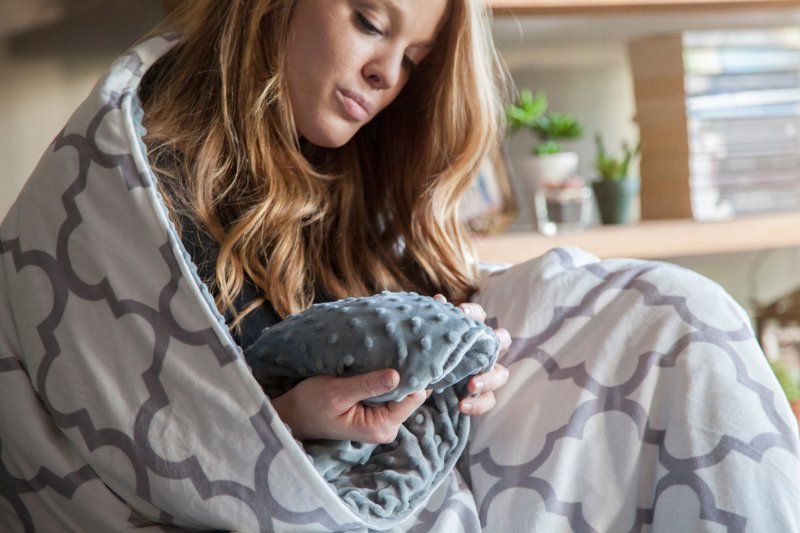
For years now, weighted blankets have been viewed as a beneficial solution for children and adults who suffer from disorders such as Attention Deficit Hyperactivity Disorder (ADHD) or even Autism Spectrum Disorder (ASD). Because of their ability to soothe, parents often turned to them to help their little ones sleep better. But did you know they can also be beneficial to individuals who suffer from anxiety and sleep apnea? In this article, we’ll look at how they work and what benefits they offer to someone dealing with the inability to rest.
Weighted Blankets: What Makes Them So Special?
Unlike a regular comforter or blanket, weighted ones create a more comfortable and soothing experience. Because of the additional, gentle pressure that is evenly distributed along the body, many individuals believe these blankets help them to feel as if they’re being hugged.
Referred to as “deep pressure stimulation,” they help to decrease the nervous system, making it less likely to remain alert so that a person can more readily drift off to sleep. Anxiety, ADHD, autism, and other sensory disorders can make it difficult to calm down the stressful stimuli that exist within the body, but with the help of a weighted blanket, a person can begin to experience a decrease in their heart rate and blood pressure, both of which emit a greater sense of relaxation.
Ways Weighted Blankets Can Treat Sleep Apnea
Patients who suffer from obstructive sleep apnea may feel as if there is no hope when it comes to achieving a good night’s rest. When a lack of airflow causes frequent waking throughout the night, fatigue, moodiness, and even serious health conditions can develop and negatively affect their day-to-day life.
Fortunately, with the help of a sleep dentist, appropriate treatment in the form of CPAP therapy, oral appliance therapy, and even weighted blankets can help a person embrace a better quality of life.
Some of the key benefits of using a weighted blanket for sleep apnea treatment include:
- Oxytocin levels increase, allowing individuals to feel calm during sleep. This is especially helpful in trying to achieve a full sleep cycle, which is often difficult for people suffering from OSA.
- Stress is lowered because there is less cortisol being stimulated (this is the hormone that control’s how the body reacts to stress). When an individual is too stressed, they will often find it hard to fall asleep; however, with a weighted blanket, the gentle pressure can help to lower these stress levels and create a more comfortable and relaxing sleep environment.
- Greater levels of serotonin are produced, which is known to assist in better sleep as well as more positive moods.
Weighted blankets are a beneficial tool for most people, so if you’re interested in trying one for yourself, don’t be afraid to ask your local sleep dentist where you can find one.
About the Author
Do you suffer from sleep apnea? Dr. Shelley Shults is a board-certified nurse practitioner, general dentist, family nurse practitioner, and dental sleep medicine practitioner who wants to help. Leading a team of professionals at Powell Dental Sleep Solutions, she uses advanced technology and treatments to help patients get the rest they need while embracing life to its fullest. If you want to sleep better, contact us at (614) 396-9310.
